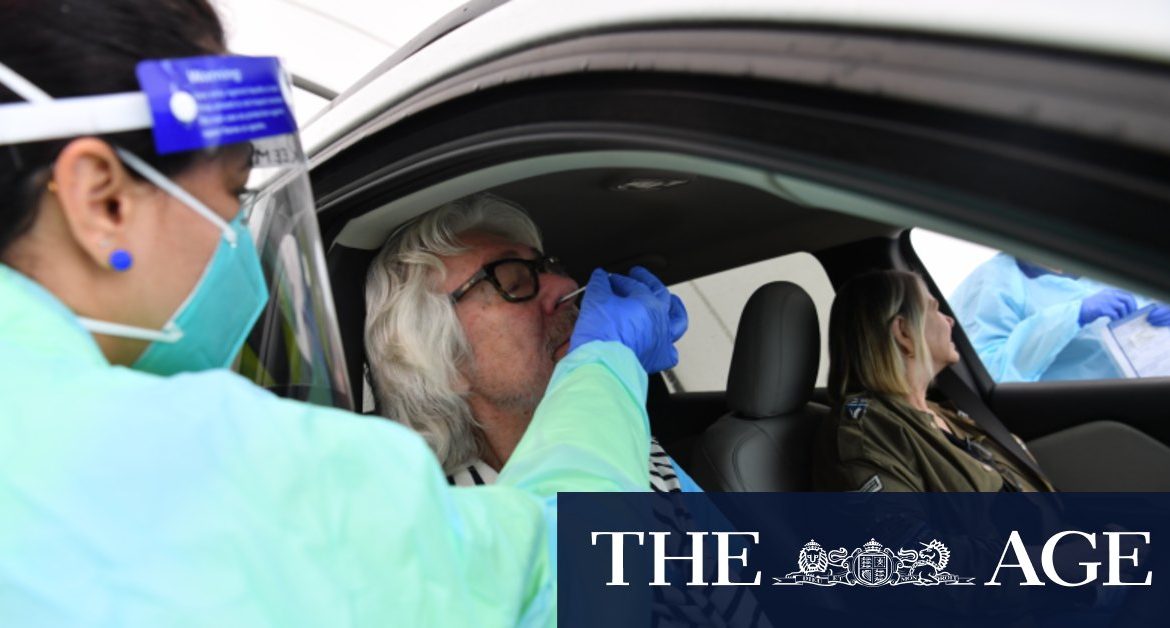Loading
The move follows sustained pressure from epidemiologists and infectious diseases experts to implement mandatory daily rapid antigen screening for all personnel working in quarantine.
The quarantine system poses the greatest risk of future outbreaks, with nearly 111,500 international travellers landing at Sydney Airport since the process began last March.
In December, two patient transport workers were infected with the virus transmitted by COVID-positive returned travellers they were shuttling. One of these cases spawned the Berala cluster in western Sydney which numbers 18.
The source of the Avalon cluster and its 149 cases was imported from the US. Virus samples from the cluster came very close to matching a sample from a woman in hotel quarantine who had flown into the US roughly two weeks before the outbreak was detected.
Public health consultant and epidemiologist Dr Henning Liljeqvist said rapid antigen testing performs as well as PCR (nasopharyngeal tests) in terms of their false positive rate and were approaching the rate of PCR’s false negative rate.
“Because they provide a result in 15 minutes and can be used outside of a lab, they are a good screening tool to be used in conjunction with gold standard PCR tests,” Dr Liljeqvist said.
“Using these rapid tests on asymptomatic people, we increase our ability to detect cases of COVID-19 that otherwise would be missed.”
There have been 111,466 international travellers and 12,548 domestic travellers quarantined in NSW in the nine months since the first traveller checked into hotel quarantine on March 29 up to the end of 2020.
Around 5000 travellers are quarantined at any one time, NSW Health says.
A total of 6342 international travellers have been quarantined in special health accommodation including 890 COVID-positive people. Some 306 travellers were transferred to Royal Prince Alfred Hospital for assessment and treatment for a range of health conditions, including 17 with COVID.
Travellers with no symptoms are transferred to NSW-managed quarantine hotels by buses with the support of Transport NSW and the Australian Defence Force.
A NSW Health spokesperson said strict infection control and prevention practices – including personal protective equipment – are in place at all points, from the moment travellers are screened at the airport.
“All of the agencies involved in the NSW airport operations and quarantine program have extensive audit programs in place to ensure compliance. These are continually reviewed and enhanced,” a NSW Health statement read.
Get our Coronavirus Update newsletter
Stay across the news you need to know related to the pandemic. Sent Monday and Thursday. Sign up here.
Kate Aubusson is Health Editor of The Sydney Morning Herald.
Most Viewed in National
Loading







